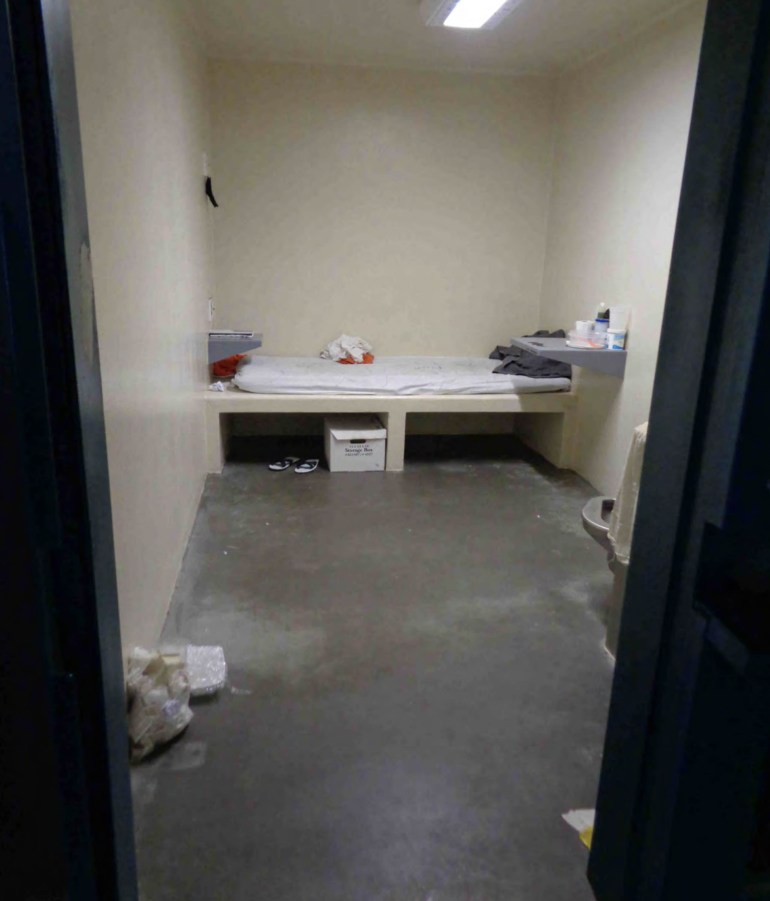Solitary confinement is still widespread in US prisons and jails
The United States continues to lock people in isolation even though it causes severe psychological damage that can last a lifetime.
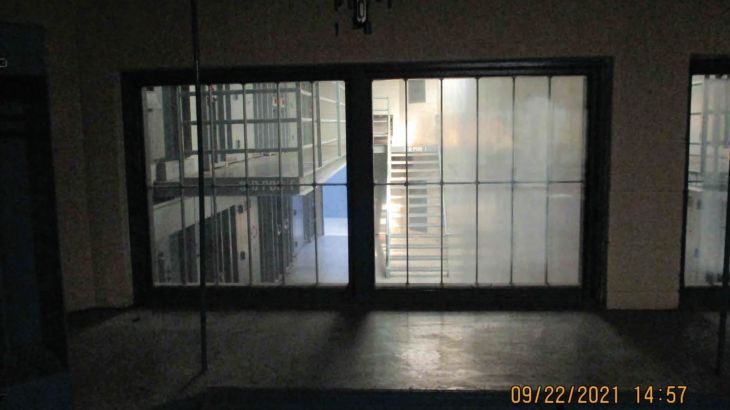
When Kwaneta Harris entered solitary confinement in 2015, she knew it would be much harder to keep in touch with her family. She was permitted one five-minute phone call every 90 days.
“I can’t even speak with my oldest daughter because she doesn’t live with my mom who basically has to give me a super quick rundown of everything,” she told Al Jazeera in a recent interview at the Lane Murray Unit in Gatesville, Texas.
Keep reading
list of 3 itemsMyanmar’s Aung San Suu Kyi moved to prison solitary confinement
Arrests, hunger strikes, protests – the life of Khader Adnan
“I’m already isolated from my community, the prison sentence should be the punishment; I shouldn’t be forced to watch people descend into madness back here.”
A recent report by Unlock The Box and Solitary Watch revealed that Kwaneta is one of more than 120,000 people in solitary confinement on any given night in the United States. The figure far eclipses previous estimates because it includes data about inmates in both jails and prisons.
Jails are shorter-term facilities for people awaiting trial, whereas prisons hold people convicted of a crime – sometimes for long periods of time.
The cells for solitary confinement are about the size of a parking space, with enough room to walk a few paces, and barriers preventing contact with other human beings.

“The widespread use of solitary confinement in our prisons and jails is a humanitarian crisis,” said Jean Casella, director of Solitary Watch, an organisation dedicated to raising awareness about the practice.
“As the United Nations has confirmed, it’s torture taking place on US soil. Now, we finally have a comprehensive count of how many people are in solitary confinement.”
It is not just the total number of prisoners subjected to extreme isolation, it is also the length of time people are held there.
“I think it’s really important to point out how extreme the United States is,” said Michele Deitch, director of the Prison and Jail Innovation Lab at the University of Texas at Austin.
“In European countries, it’s considered a violation of human rights for someone to be locked up for more than 15 days in solitary confinement, and we’re locking up people here for 20 or 30 years,” Deitch told Al Jazeera.
The psychological effect of solitary confinement is well established, but the practice is still widespread in the US. Spending just one week in isolation (PDF) actually causes changes in electrical activity in the brain, according to a study by the Vera Institute of Justice, a US research organisation.
“There’s something about being isolated in a room with oneself and not having anything productive or meaningful to do that causes an exacerbation of every form of mental illness,” said Terry Kupers, a psychiatrist who has interviewed more than 500 prisoners in solitary confinement.
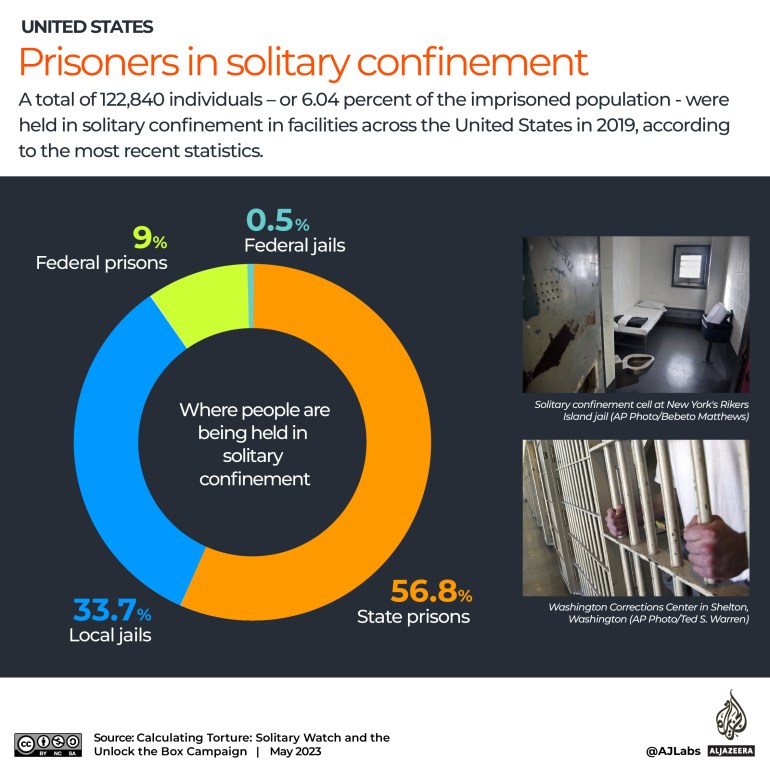
“People who have a psychotic condition like schizophrenia, bipolar disorder or post-traumatic stress disorder, what they will have is an exaggeration of the symptoms they were already feeling,” Kupers told Al Jazeera.
Texas is one of the leaders in the nation when it comes to isolating prisoners. The agency that runs the prison system does not use the term solitary confinement – it refers to the practice as “administrative segregation” or “restrictive housing”.
“If you’ve never worked a max unit, you just don’t know that there are guys in there that are really dangerous,” said retired Warden Randy Treon in an interview with Al Jazeera. “I’ve had staff members murdered, staff members assaulted, there are really dangerous people in the penitentiary and you’ve got to house them somewhere.”
Texas stopped using solitary confinement as a punishment for prisoners in 2017 but maintains the system for prisoners designated an escape risk, gang members and offenders with a history of violence.
There are currently more than 3,000 prisoners in Texas who are held in isolation for at least 22 hours a day. Those numbers are down significantly from 10 years ago, when the numbers were double that. There are more than 500 people who have been in isolation for more than a decade.
The Texas Department of Criminal Justice (TDCJ) told Al Jazeera in a statement that it has “made great strides in reducing the security detention population and it only accounts for 3 percent of the total inmate population in the state”.
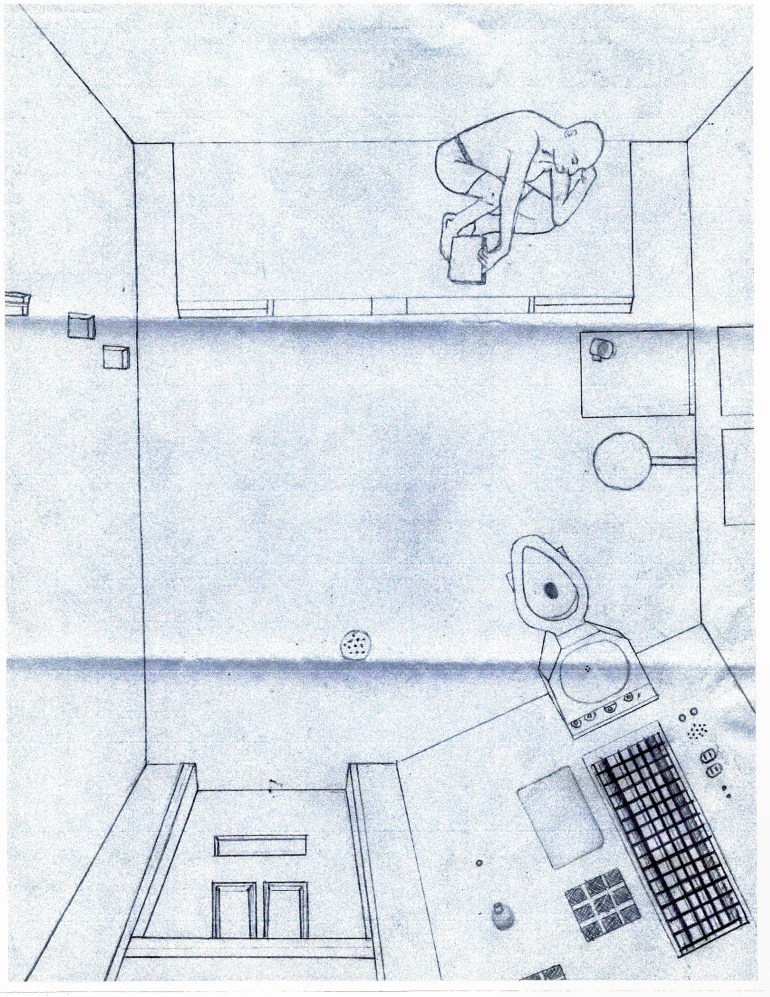
One of the men currently in long-term solitary confinement, Sebastian Mejia, has spent more than 15 years in isolation. He is at the Polunsky Unit, which is the same facility as death row. Inmates awaiting execution are all held in solitary confinement. Mejia sent Al Jazeera a letter describing his experience there.
“The impact on our soul and psyche from such an existence is absolute desolation. However it’s not just the impact on our souls in here that should concern people, it’s the impact it will have out there in the free world, 95 percent of the men surrounding me will be free one day.”
The issue of extreme isolation in Texas prisons became more visible in January, when inmates at 11 facilities across the state went on a hunger strike. They wanted to raise awareness about lengthy sentences and a lack of access to a range of services such as taking classes or learning a trade that could help them become eligible for parole.
“There really isn’t any independent oversight over the system, so for these inmates to speak up, it shows how desperate they are,” said CJai Foster, an advocate with Texans Against Solitary Confinement. “They know there is a chance that they could be retaliated against and they participated anyway.”
The TDCJ responded to the strike partially by denying media access to the inmates taking part. Amanda Hernandez, the department’s director of communications said the move was to prevent the strike from growing. “By allowing the interviews, we feel we are allowing them to organise and further cause disruption,” she said, according to the Texas Tribune. The strike ended after seven weeks with no concessions made by the state agency that manages the prisons.
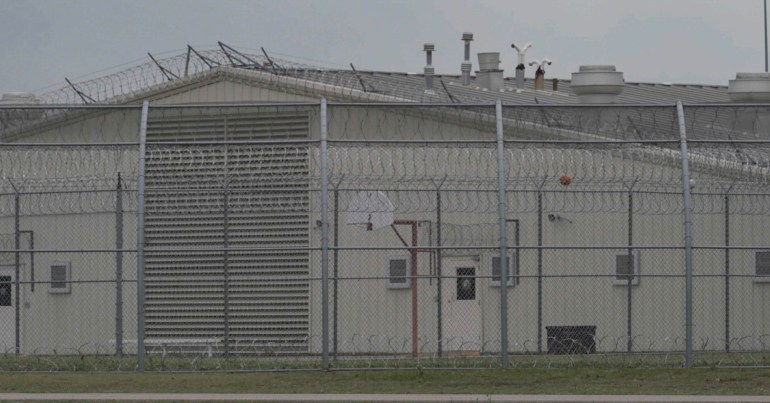
After the hunger strike, several bills were introduced in the Texas legislature to limit the amount of time people can be placed in isolation, as well as study the effect that it has on mental health. None of the bills were voted into law.
The practice of isolating prisoners does not have a historical precedent in the US. In fact, for most of the country’s history, the act was frowned upon.
“At the time of the founding and for at least the first 100 years of this country’s existence, we don’t have any record of someone being in solitary confinement for longer than 16 months,” Easha Anand, a lawyer with the MacArthur Justice Center told Al Jazeera. “The idea that someone would be in solitary confinement for more than a period of a few days or weeks was just not something that anyone accepted.”
As mass incarceration exploded in the 1970s and 1980s, violence behind bars increased significantly. The Texas prison system reacted by locking away violent offenders in the administrative segregation programme. The agency was able to bring the violence under control but the system has remained in place for decades.
Kwaneta Harris said she believes that, at some point, the practice will have to end.
“They know the damage solitary confinement causes, it isn’t new. We’ve known this for over 100 years. It destroys people’s souls, it’s a slaughterhouse for souls. They have to end this.”
